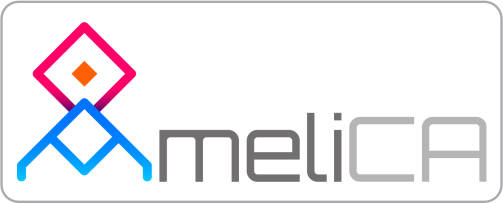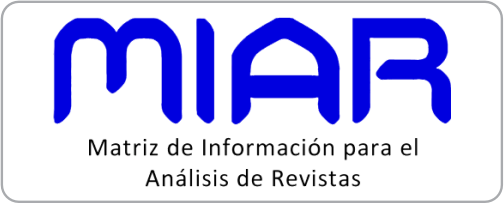Implementation and operation of a clinical information system in a therapeutic community
DOI:
https://doi.org/10.51252/rcsi.v1i1.109Keywords:
Information system, Information and communication technologies, Therapeutic Community, Traditional Amazonian medicineAbstract
Information and communication technologies (ICT) have a growing impact in the health sector, are oriented towards the optimization of processes and their application covers fields such as psychotherapy and occupational therapy. The objective of this article is to describe the information system Plus, an initiative of the therapeutic community Takiwasi that arises from the need to establish a platform for the collection, storage and management of the different clinical processes and data that are generated within the institution throughout the treatment of drug-addict patients. The peculiarity of this system is closely linked to the uniqueness of the treatment protocol for addiction proposed in Takiwasi, where the practices of traditional Amazonian medicine are associated with modern psychotherapy, classic biomedical follow-up and other therapeutic spaces belonging to alternative and complementary medicine. The different modules by which the system is constituted are presented, as well as the information registration process. This ICT represents a fundamental tool to promote research on the therapeutic applications of traditional medicine and serves as key feedback for therapeutic interventions.
References
Acebal C. (2002). eXtreme Programming (XP): un muevo método de desarrollo de software. Novática: Revista de la Asociación de Técnicos de Informática 156:8-12.
Berlowitz, I., Ghasarian, C., Walt, H., Mendive, F., Alvarado, V., and Martin-Soelch, C. (2018). Conceptions and practices of an integrative treatment for substance use disorders involving Amazonian medicine: traditional healers’ perspectives. Brazilian Journal of Psychiatry 40(2):200-209. http://dx.doi.org/10.1590/1516-4446-2016-2117
Berlowitz, I., Walt, H., Ghasarian, C., Mendive, F., and Martin-Soelch, C. (2019). Short-Term Treatment Effects of a Substance Use Disorder Therapy Involving Traditional Amazonian Medicine. Journal of Psychoactive Drugs, 1–12. doi:10.1080/02791072.2019.1607956
Bialas, C., Revanoglou, A., and Manthou, V. (2019). Improving hospital pharmacy inventory management using data segmentation. American Journal of Health-System Pharmacy.
Cervi, F., Friso, F., Saucedo, G., Biolcati, R., Torres, J. and Politi, M. (2019). La experiencia de la comunidad terapéutica "Centro Takiwasi" en el contexto de la medicina natural e integrativa. Medicina Naturista 13 (2):12-19.
Defelippe, V., Schlütter, A., Meriaan, A., Winkens, B., Kavenská, V., Saucedo, G. and Politi, M. (2019). Treatment and outcomes at Takiwasi Center, a Peruvian therapeutic community: identifying patient-related indicators. Therapeutic Communities: The International Journal of Therapeutic Communities 40 (2)93-106. doi: https://doi.org/10.1108/TC-07-2018-0016
Feijó, L.P, Silva, N.B., and Benetti, S.P. (2018). Impact of Information and Communication Technologies on the Psychoanalytic Psychotherapeutic Technique. Trends in Psychology, 26(3), 1633-1647. https://doi.org/10.9788/tp2018.3-18en
Feldman, S.S., Buchalter, S., and Hayes, L.W. (2018). Health Information Technology in Healthcare Quality and Patient Safety: Literature Review. JMIR Med Inform 6(2).
Giovannetti, C., Garcia Arce, S., Rush, B., and Mendive, F. (2020). Pilot Evaluation of a Residential Drug Addiction Treatment Combining Traditional Amazonian Medicine, Ayahuasca and Psychotherapy on Depression and Anxiety. Journal of Psychoactive Drugs, 1–10. doi: 10.1080/02791072.2020.1789247
Giove, R. (2002). La liana de los muertos al rescate de la vida: Medicina tradicional amazónica en el tratamiento de las toxicomanías. Lima: Takiwasi.
Haux R. (2006). Health information systems - past, present, future. International Journal of Medical Informatics 75(3–4):268–81.
Haux, R. (2018). Health Information Systems – from Present to Future? Methods of Information in Medicine, 57(S 01), e43–e45. doi:10.3414/me18-03-0004
Kamarudin, S., and Mohammad, M. I. (2011). File Security based on Pretty Good Privacy (PGP) Concept. Computer and Information Science, 4(4). doi:10.5539/cis.v4n4p10
Lara De López, J.L. (2014). Las Tecnologías de la Información y Comunicación como medio de intervención en Terapia Ocupacional. Cuadernos de la Escuela de Salud Pública 2 (88).
Mabit, J., and González Mariscal, J. (2013). Towards a transcultural medicine: Reflections and proposals based on the experience in Takiwasi. Journal of Transpersonal Research 5(2):49-76.
Malivert, M., Fatséas, M., Denis, C., Langlois, E., and Auriacombe, M. (2012). Effectiveness of therapeutic communities: a systematic review. European Addiction Research 18(1):1–11.
McQuaid, R.J., Jesseman, R., and Rush, B. (2018). Examining Barriers as Risk Factors for Relapse: A focus on the Canadian Treatment and Recovery System of Care. Canadian Journal of Addiction 9(3):5–12.
Nord, R.L., Tomayko, J.E., and Wojcik, R. (2004). Integrating Software-Architecture-Centric Methods into Extreme Programming (XP). Final technical note. Carnegie-Mellon Univ. Pittsburgh Software Engineering Institute.
Osborne T.L., and Luoma J.B. (2018). Overcoming a primary barrier to practice-based research: Access to an institutional review board (IRB) for independent ethics review. Psychotherapy (Chic). 55(3):255-262. doi: 10.1037/pst0000166. PMID: 30179032.
O’Shaughnessy, D.M. (2017). Takiwasi: addiction treatment in the “Singing House”. Phd thesis, Faculty of Medicine, James Cook University, Townsville. Available at https://doi.org/10.4225/28/5a9dce00eafa6
Plazzotta, F., Luna, D., and González Bernaldo de Quirós, F. (2015). Sistemas de Información en Salud: Integrando datos clínicos en diferentes escenarios y usuarios. Revista Peruana de Medicina Experimental y Salud Publica 32(2):343–51.
Politi, M., Friso, F., and Mabit, J. (2018). Plant based assisted therapy for the treatment of substance use disorders - part 1. The case of Takiwasi Center and other similar experiences. Cultura y Droga 23(26):99–126.
Politi, M., Friso, F., Saucedo, G., and Torres, J. (2020). Traditional Use of Banisteriopsis caapi Alone and Its Application in a Context of Drug Addiction Therapy. Journal of Psychoactive Drugs, 1–9. doi: 10.1080/02791072.2020.1820641
Saucedo, G., Friso, F., Torres, J., and Politi, M. (2018). Uso de tecnologías de la información en la gestión de un centro de medicina integrativa especializado en adicciones. Revista Peruana de Medicina Integrativa 3 (3):123-31. doi: http://dx.doi.org/10.26722/rpmi.2018.33.92 .
Smith, J.A., and Osborn, M. (2015). Interpretative phenomenological analysis as a useful methodology for research on the lived experience of pain. British Journal of Pain 9(1):41–2.
UNODC. (2019). World Drug Report 2019. Available at: https://wdr.unodc.org/wdr2019/
Published
How to Cite
Issue
Section
License
Copyright (c) 2021 Gary Saucedo, Fabio Friso, Matteo Politi

This work is licensed under a Creative Commons Attribution 4.0 International License.
The authors retain their rights:
a. The authors retain their trademark and patent rights, as well as any process or procedure described in the article.
b. The authors retain the right to share, copy, distribute, execute and publicly communicate the article published in the Revista Científica de Sistemas e Informática (RCSI) (for example, place it in an institutional repository or publish it in a book), with an acknowledgment of its initial publication in the RCSI.
c. Authors retain the right to make a subsequent publication of their work, to use the article or any part of it (for example: a compilation of their works, notes for conferences, thesis, or for a book), provided that they indicate the source of publication (authors of the work, journal, volume, number and date).















